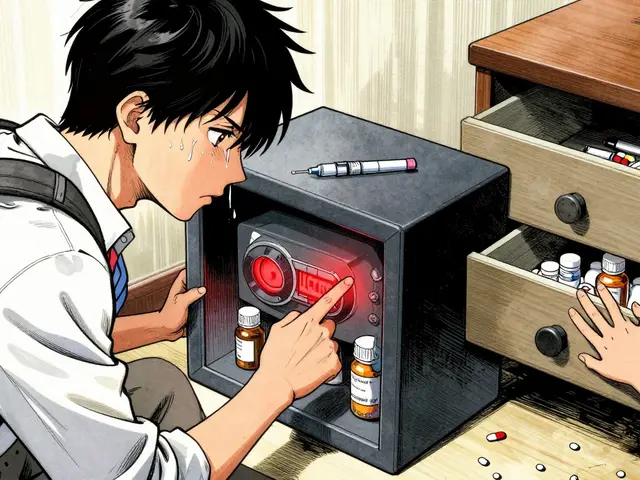Alternative Therapies for Chronic Pancreatitis: A Practical Guide
October 3 2025HIV Care Made Simple: What You Need to Know Today
If you or someone you love is living with HIV, the first question is usually “where do I start?” The answer isn’t a single step – it’s a mix of meds, habits, and support that keep you healthy. Below we break down the must‑do actions, so you can feel confident about managing HIV every day.
1. Stick to Your Antiretroviral Therapy (ART)
The backbone of HIV care is antiretroviral therapy. These pills keep the virus at bay and protect your immune system. The key rule? Take them exactly as prescribed – same time, same dose. Missed doses can let the virus bounce back and raise resistance risk.
Set a daily alarm on your phone, use a pill organizer, or link meds to another routine (like brushing teeth). Most people find that keeping medication next to something they never forget, like a coffee mug, works wonders.
2. Manage Side Effects and Stay Healthy
New meds can bring headaches, nausea, or fatigue. Talk to your doctor about any symptom – often there’s an easier alternative or a simple remedy (like taking the pill with food). Staying hydrated and eating balanced meals helps the body process drugs better.
Exercise isn’t optional either. Even a 20‑minute walk three times a week boosts immune health and reduces stress. If you’re unsure how to start, ask your clinic for a beginner’s plan – many offer free resources.
Nutrition matters too. Focus on lean proteins, whole grains, fruits, and veggies. Limit sugary drinks and heavy alcohol; they can interfere with medication metabolism.
3. Look After Your Mental Well‑Being
Living with HIV can feel isolating. It’s normal to have anxiety or mood swings, especially when navigating new meds. Reach out to a counselor, join an online community, or attend a local support group. Sharing experiences cuts down stigma and gives practical tips you won’t find in a brochure.
If cost is a worry, many nonprofits provide free therapy for people with chronic illnesses. A quick internet search with your city name + “HIV counseling” usually points you to the right place.
4. Keep Up With Medical Check‑Ups
Your doctor will schedule regular blood work to track viral load and CD4 counts. These numbers tell you how well ART is working. Aim for appointments every three to six months, or as your provider advises.
Don’t skip vaccinations – flu shots, Hepatitis B, and HPV vaccines protect you from other infections that could strain a weakened immune system.
5. Find Reliable Information and Support
There’s a lot of noise online, so stick to trusted sources like national health agencies or clinics linked to your insurance. Websites such as the CDC, WHO, and local HIV charities keep their data up‑to‑date.
When you need medication refills, use reputable pharmacies that verify prescriptions. If you’re unsure about a pharmacy’s legitimacy, call your doctor for a recommendation.
Remember, HIV care isn’t just about pills – it’s a lifestyle that blends treatment, good habits, and community. Follow these steps, stay curious, and keep the conversation open with your health team. You’ve got this, and you’re not alone.
 13 May
13 May
Ritonavir and the digital age: Leveraging technology for improved HIV care
In today's blog post, I want to talk about the incredible advancements in technology and how they've been applied to improve HIV care, particularly when it comes to the antiretroviral medication, Ritonavir. The digital age has brought about innovative tools and resources that have made it easier for healthcare providers to monitor patients, ensuring they receive the best possible care. Telemedicine, for example, has been a game changer in providing access to specialists for those living in remote areas. Additionally, smartphone apps have been developed to help patients track their medication intake, ensuring adherence to their treatment plan. With the power of technology, we can continue to improve HIV care and hopefully create a world free of HIV.
Read More...




